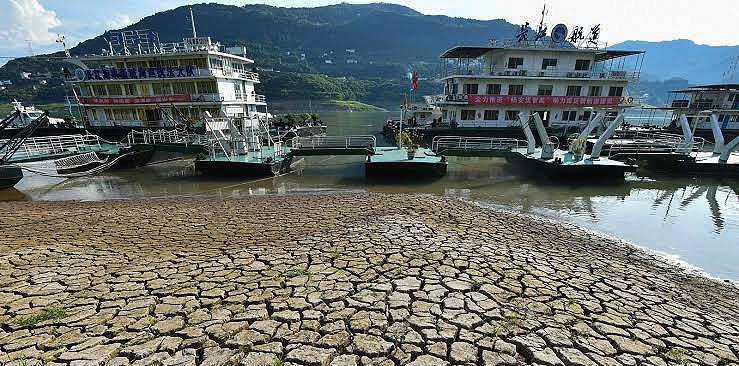By John Ikani
China has issued its first national drought alert of in nine years as authorities battle forest fires and mobilise specialist teams to protect crops from scorching temperatures across the Yangtze River basin.
The national ‘yellow alert’, issued late on Thursday, comes after regions from Sichuan in the southwest to Shanghai in the Yangtze delta have experienced weeks of extreme heat, with government officials repeatedly citing global climate change as the cause.
The alert is two notches short of the most serious warning on Beijing’s scale.
China’s meteorological agency said Friday that at least 244 cities across the country could see temperatures rise above 40 degrees Celsius (104 degrees Fahrenheit), while another 407 could see the mercury rise to more than 37C (98F).
Forecasters expect the heat wave to could continue for another week, while the next three days will see little rain and continued drought development.
Provinces in southern and central China — especially those along the Yangtze River, such as Jiangsu, Hubei and Sichuan — are the most affected.
In one of the Yangtze’s important flood basins in central China’s Jiangxi province, the Poyang lake has now shrunk to a quarter of its normal size for this time of year, state news agency Xinhua reported.
As many as 66 rivers across 34 counties in the southwestern region of Chongqing have dried up, state broadcaster CCTV said on Friday.
More than 300,000 people are experiencing temporary difficulties even accessing drinking water. It’s a significant number of people impacted, but a fraction of China’s population of 1.4 billion.
The drought has affected more than 2 million acres worth of farmland in six provinces, a water ministry official said Wednesday.
Local officials have been advised to conserve water supplies for domestic purposes and reduce agricultural, commercial and industrial use. Authorities are also trying to seed clouds to make it rain
The extreme heat has caused a spike in demand for air conditioning in offices and homes, putting pressure on the power grid. The drought has also depleted river water levels, reducing the amount of electricity produced at hydropower plants.
Economists have also warned that the extreme temperatures could further drag down the world’s second-largest economy, which is already dealing with the effects of its strict Covid-19 lockdowns and a real estate crisis.
Both Goldman Sachs and financial services firm Nomura lowered their forecasts for China’s GDP growth this year, citing in part the heat wave.


































